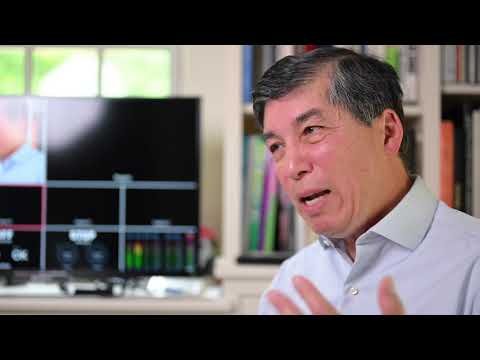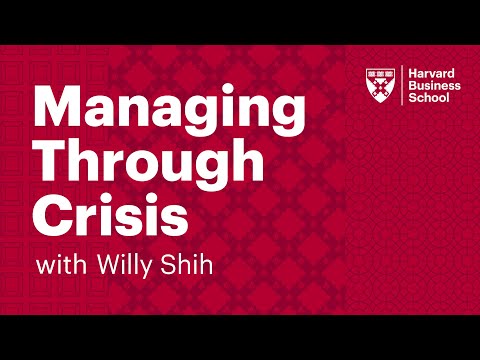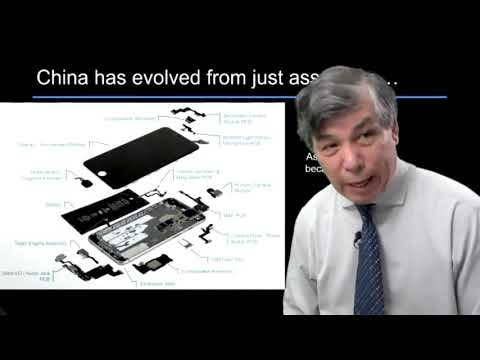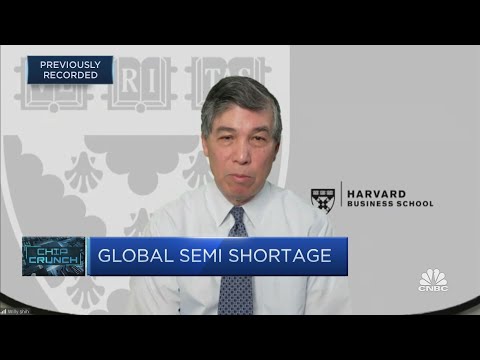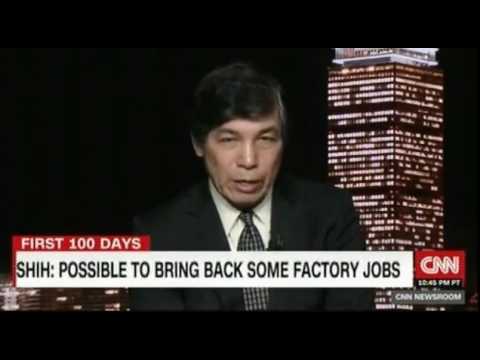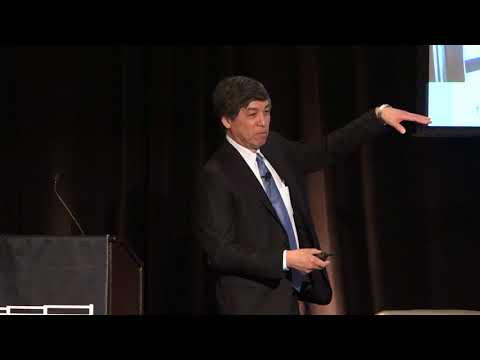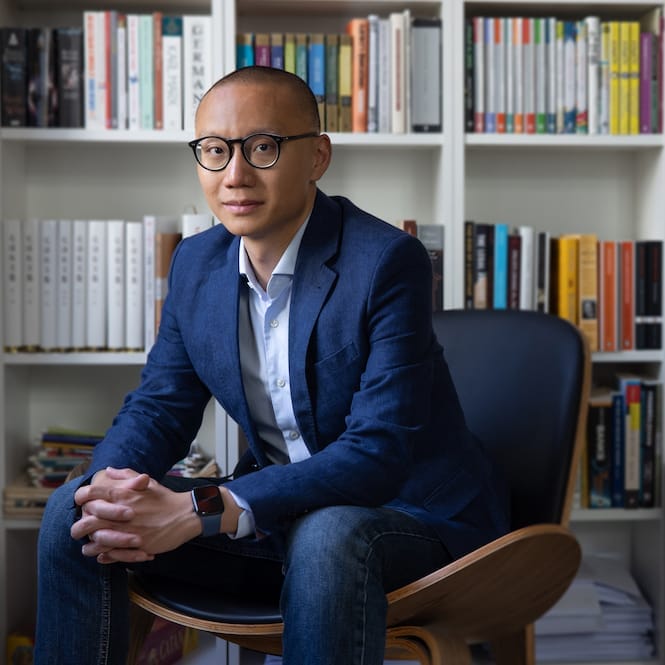Videos
Learn More About Willy Shih
Global supply chain disruptions are affecting every industry due to the pandemic. In times like these, organizational leaders consult with Willy Shih, the Robert & Jane Cizik Professor of Management Practice at the Harvard Business School (HBS) and a world-renowned expert on global manufacturing and supply chain issues. As an advisor and educator, he is particularly focused on helping leaders successfully manage the production and distribution of complex technical products.
Co-author of “Producing Prosperity – Why America Needs a Manufacturing Renaissance” (Harvard Business Review Press), Shih helps organizations understand the unique structure of their product pipelines, including factory processes, distribution of work, intellectual property issues, and how complex supply chain interdependencies can lead to a concentration of risk and loss of resilience during a crisis. In addition to teaching manufacturers how to win by capitalizing on new technologies and investing in updated practices, he shares strategies for preventing future problems and leading through organizational change.
A longtime practitioner prior to becoming a professor in the Technology and Operations Management unit at HBS, Shih spent 28 years of his career overseeing the development and manufacturing of sophisticated technology for companies as diverse as IBM, Kodak and Silicon Graphics. In several senior roles, he was directly responsible for operations in various countries, including the U.S., Ireland, Mexico, Japan and China. During that period, he developed a taste for what he calls “messy problems.”
“When I joined Kodak in 1997, I was handed a division that had 3,000 employees and was losing $400 million a year. I encountered real-life challenges one doesn’t experience in the classroom,” explains Shih, who was instrumental in reducing the workforce to 1,167 and leading the unit to break even. He also helped Kodak launch one of the most successful patent licensing programs in U.S. history, which eventually helped the company stave off bankruptcy for several years. Though Kodak eventually collapsed after Shih left, he says it was primarily because of the nature of the technology transition, not because management didn’t recognize digital as a threat.
Over his years in industry, Shih often visited critical industrial areas in China, including cities within the Pearl River Delta known as the “Workshop of the World.” When he began teaching at HBS, he immersed his students in the Chinese factory experience to help them better understand the industrial model. Those visits later became the source of several influential case studies for the HBS curriculum that explore industries such as consumer products, consumer electronics, media and entertainment, automobiles, viral infection and vaccines, supply chain logistics, and semiconductors. His historical note on the history of the Taiwan semiconductor industry is widely used as a background on the development of the semiconductor foundry industry.
In the early stages of the pandemic, media outlets from NPR to Forbes sought out Shih’s insights, which were amplified by his popular TEDxBeaconStreet talk, “What Toilet Paper Can Teach Us About Supply Chains,” and an interview on HBS‘ “Managing Through Crisis” series.
A regular contributor to Forbes, Shih offers unique insights into semiconductors and Asian manufacturing that are of great value to international companies. His writings on American competitiveness have been widely cited by policy makers and his related co-authored paper, “Restoring American Competitiveness,” won a McKinsey Award in 2009. He also shared his thoughts on innovation in the 2010 book, “Innovation Killers: How Financial Tools Destroy Your Capacity to Do New Things,” co-authored with the late Clayton M. Christensen.
“Before entering academia, I learned valuable lessons while helping organizations transition from older to newer technology where the business model and the profit model are very different,” Shih adds. “I share those lessons with business leaders and students so they can be better prepared to face similar challenges.”
###
Willy Shih is currently on the board of directors of FLEX Inc., one of the largest electronic manufacturing and supply chain services providers in the world, and the board of directors of VEO Robotics, Inc. He was recently appointed to the U.S. Department of Commerce Advisory Board on Supply Chain Competitiveness. Shih regularly speaks about the challenges the Covid-19 pandemic has wrought for global supply chains, and his views on semiconductor production and Asian manufacturing are often cited. He holds a Ph.D. from the University of California, Berkeley, and two Bachelor of Science degrees from M.I.T.
Willy Shih is available to advise your organization via virtual and in-person consulting meetings, interactive workshops and customized keynotes through the exclusive representation of Stern Speakers & Advisors, a division of Stern Strategy Group®.
Supply Chain Management in a Post-Pandemic World: U.S., China & the New World of Globalization
Product shortages during the Covid-19 pandemic elevated the importance of and threats to supply chains. They also prompted many questions about the inner workings of global manufacturing and distribution processes. In this talk, Harvard Business School Professor Willy Shih, a world-renowned expert on global supply chain management and organizational change, discusses modern global supply chain complexities and interdependencies, the “supply shock” followed by the “demand shock” that occurred during the pandemic, and the many forces impacting the future of supply chains, including the subsequent surge in Chinese exports. He also shares his recommendations for strengthening competitiveness, including modernizing infrastructure and logistics, evolving the role of the warehouse and distribution center, and ramping up investment in automation.
Compete to Win by Capitalizing on New Technologies and Successfully Leading the Transition
The Eastman Kodak Company once had the highest market capitalization of any business listed on the New York Stock Exchange. But after a steady decline that included filing for bankruptcy protection in 2012, it is now cited as a prime example of a company unable to manage the impact of digital technology on its business. Earlier in his distinguished career, Harvard Business School Professor Willy Shih, a world-renowned expert on global supply chain management and organizational change, served as president of Kodak’s consumer digital business from 1997 until 2003. In this talk, he shares valuable lessons from that experience, including the source of Kodak’s failures, which still inform companies struggling to embrace digital transformation today. Citing Kodak’s operational ecosystem, challenges of scale and culture, and its organizational model, Shih discusses the value of investing in new technologies, how to prepare your organization for change and how to successfully lead the transition.
Exploration vs. Exploitation: Managing Uncertainty to Ensure Growth
The key to sustainable success is not always doing the things that initially made you successful. Continued growth requires both exploration — activities involving new technologies and markets — as well as exploitation of the current business. Striking the right balance between exploration and exploitation, between fostering innovation without incurring untenable risk, is a challenge for every company, says Harvard Business School Professor Willy Shih, a world-renowned expert on global supply chain management and organizational change. In this talk, based on his popular “Building and Sustaining a Successful Enterprise” course, he draws on his 28-years of private sector experience overseeing development and manufacturing processes for sophisticated technology companies including IBM, Kodak and Silicon Graphics. He shares strategies for navigating the present (exploitation) while plotting the future (exploration) so managers can successfully respond to and lead through change in ways that keep their organization relevant and competitive.

Increasing the Level of Abstraction as a Strategy for Accelerating the Adoption of Complex Technologies
(Strategy Science, March 2021)

Bridging Science and Technology Through Academic–Industry Partnerships
(Research Policy, February 2016)

Producing Prosperity: Why America Needs a Manufacturing Renaissance
(Harvard Business Review Press, 2012)

Innovation Killers: How Financial Tools Destroy Your Capacity to Do New Things
(Harvard Business Review Press, July 2010)
“Willy was great. Perfect for our audience. He was really knowledgeable and humorous. People loved him. ”
Praise for "Producing Prosperity"
“In their book ‘Producing Prosperity: Why America Needs a Manufacturing Renaissance,’ Harvard Business School professors Gary Pisano and Willy Shih cut through the confusion. In just 138 pages — a perfect read for the Washington to New York Acela—they offer the most compelling case I have read for why making things matters, even if it will produce very few manufacturing jobs in the future.”
“The prescriptions they offer are not only timely…but they are also realistic goals that are within our grasp.”

